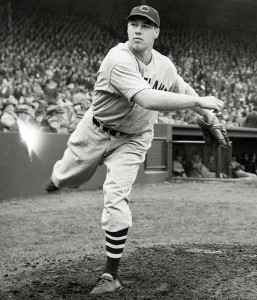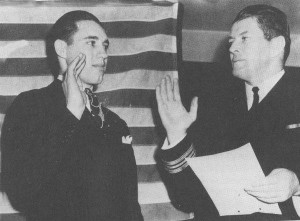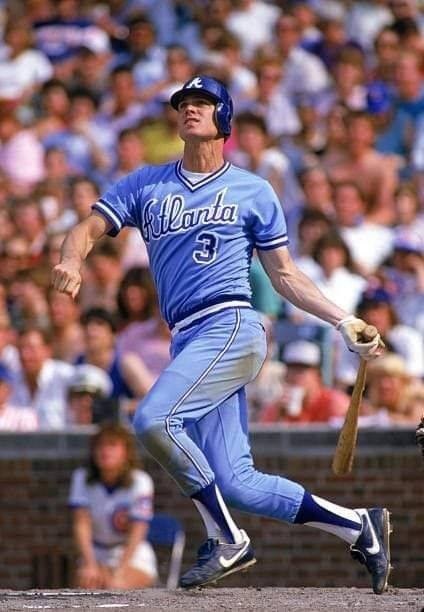“Rapid Robert” Feller Was A Hero On And Off The Diamond 5

Bob Feller was the best pitcher of his generation and first major leaguer to enlist following Pearl Harbor.
The baseball world lost an icon and the United States lost a hero with the passing Wednesday night of Baseball Hall of Famer Bob “Rapid Robert” Feller.
It is hard today to imagine a situation where all the top stars in the baseball world would put their careers on hold for multiple years to serve their country, but that is exactly what happened during World War II and Feller was the first in line.
When the United States entered the war following the bombing of Pearl Harbor in December 1941, the 23-year-old Bob Feller was without question the best pitcher in baseball.
Feller made his debut with the Cleveland Indians in 1936 and from 1939 through 1941 was nearly unbeatable. He posted a 76-33 record while leading the league in victories and strikeouts all three seasons. His best season during the stretch was in 1940 when he finished second in the American League MVP voting while posting a 27-11 record and also leading the league with a 2.61 ERA and 261 strikeouts.
Yet, after 1941, Feller wouldn’t pitch another inning in the major leagues until late in the 1945 season.
On December 8, 1941, Feller became the first Major League Baseball player to join the war effort as he enlisted in the Navy and volunteered for combat service. Amazingly, it was 69 years to the date of his enlistment that he was placed in hospice care and he passed away one week later.
While in the Navy he reached the rank of Chief Petty Officer and served as a Gun Captain on the USS Alabama. Feller was decorated with five campaign ribbons and eight battle stars. Read the rest of this entry →




